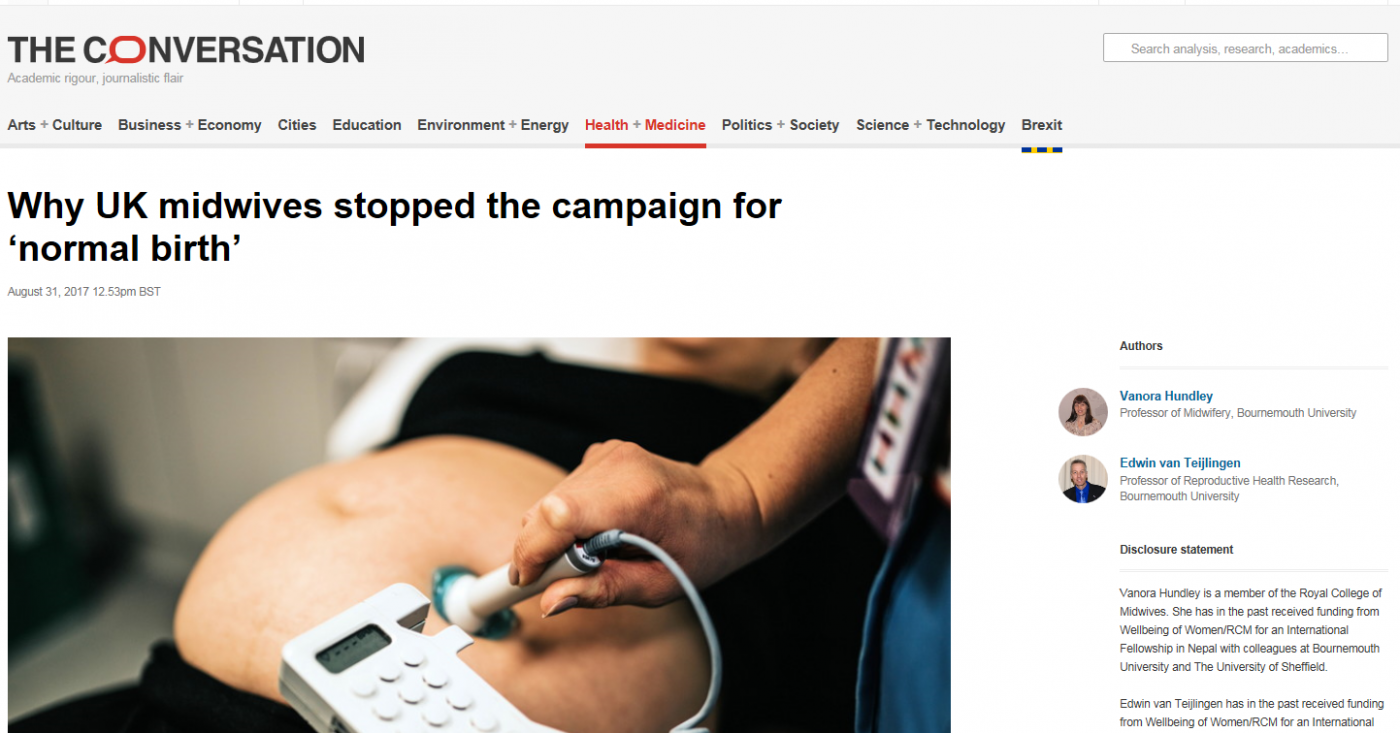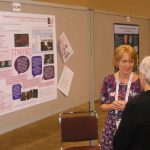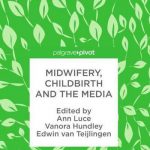
Last week saw the publication of a piece by BU Professors Vanora Hundley and Edwin van Teijlingen in The Conversation under the title: “Why UK midwives stopped the campaign for ‘normal birth’”. The editor of The Conversation invited the authors to write in reply to the statement: “According to media reports, women will no longer be told they should have an intervention-free birth and midwives will be encouraged to use terms a “physiological birth” rather than “normal birth”. We are looking for an expert to comment on this.”
The resulting article is the result of a quite long process of writing a draft, which was initially edited by The Conversation in a way the authors did not feel represented what they wanted to say. In our original submission we raised the role of the media with regard to responsible reporting, but it seems this was a step too far. In submitting a re-written version, which was edited again before it came back to the authors, we were advised that academics should not ‘blame the media’ since that avoids addressing the issue, but what if the media really does have a role? After seven or eight major alterations we reached and an agreed version that we think is a balance and fairly easy to read newspaper article. Our new book Midwifery, Childbirth and the Media due to be published by Palgrave Macmillan will cover these media issue in greater detail.
Professors Vanora Hundley & Edwin van Teijlingen
CMMPH
 Last publication of 2017?
Last publication of 2017? BU posters at international midwifery conference
BU posters at international midwifery conference New BU cross-faculty publication
New BU cross-faculty publication










 Seeing the fruits of your labour in Bangladesh
Seeing the fruits of your labour in Bangladesh Exploring Embodied Research: Body Map Storytelling Workshop & Research Seminar
Exploring Embodied Research: Body Map Storytelling Workshop & Research Seminar Marking a Milestone: The Swash Channel Wreck Book Launch
Marking a Milestone: The Swash Channel Wreck Book Launch No access to BRIAN 5-6th February
No access to BRIAN 5-6th February ECR Funding Open Call: Research Culture & Community Grant – Application Deadline Friday 12 December
ECR Funding Open Call: Research Culture & Community Grant – Application Deadline Friday 12 December MSCA Postdoctoral Fellowships 2025 Call
MSCA Postdoctoral Fellowships 2025 Call ERC Advanced Grant 2025 Webinar
ERC Advanced Grant 2025 Webinar Update on UKRO services
Update on UKRO services European research project exploring use of ‘virtual twins’ to better manage metabolic associated fatty liver disease
European research project exploring use of ‘virtual twins’ to better manage metabolic associated fatty liver disease